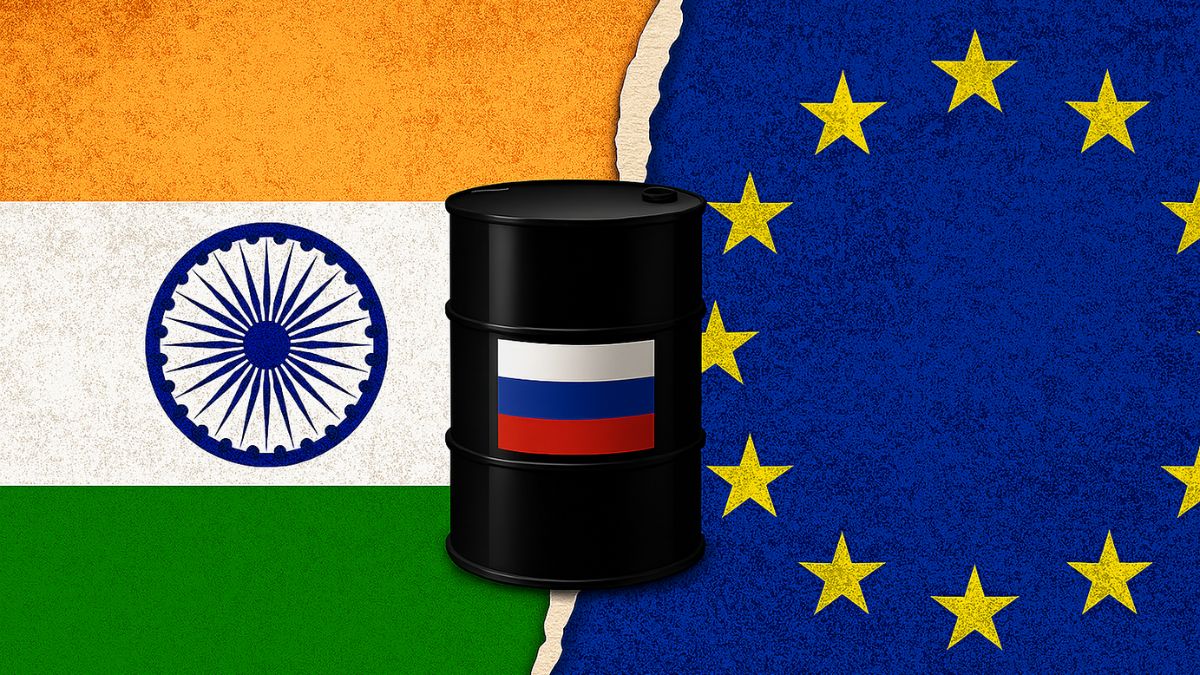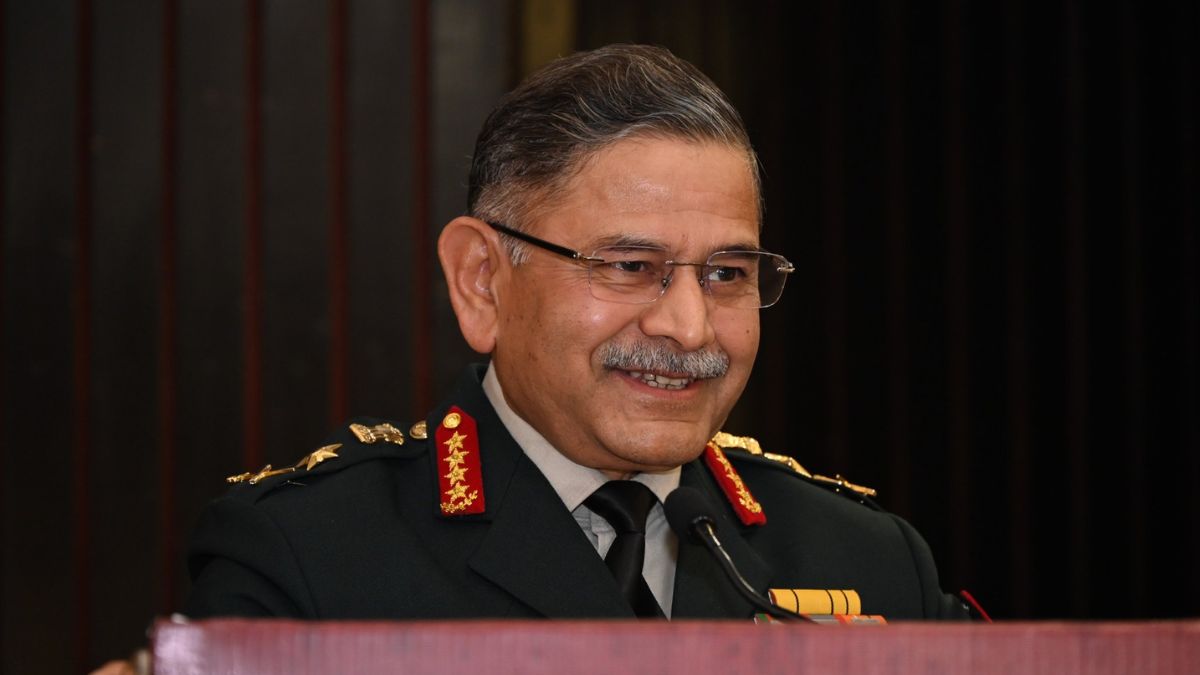India Vs EU Sanctions: Why New Delhi Won’t Back Down On Russian Oil Amid Ukraine War Pressures

The European Union has levied sanctions on India over purchase of Russian oil. Image courtesy: AI-generated picture via DALL-E
The European Union’s (EU) latest imposition of secondary sanctions targeting India’s refined fuel exports marks a significant escalation in its efforts to curtail Russia’s war economy.
At the heart of the dispute lies India’s continued purchase of discounted Russian crude, which it refines and exports globally, including to Europe.
While the EU views this as undermining its sanctions regime against Moscow, India defends the trade as lawful and essential for its energy security.
Why Is the EU escalating pressure on India over Russian oil purchases?
The EU’s decision to target India — specifically the Vadinar refinery (majority‑owned by Rosneft) and Indian fuel exports — is part of its 18th sanctions package, unveiled on July 18, 2025. The measures include lowering the cap on Russian crude to about US$47.60/bbl, banning refined petroleum products made from Russian crude via third countries, and targeting over 100 vessels in Russia’s “shadow fleet” used to evade restrictions
India has become a pivotal node in refining heavily discounted Russian oil and exporting the finished diesels and jet fuels into EU markets, exploiting a significant sanctions loophole.
The EU sees this as an intentional circumvention of its embargo, even though Indian refiners are not legally bound by EU directives. The bloc argues these flows undermine the sanctions system’s integrity.
By hitting Indian nodes like Nayara’s Vadinar refinery, Brussels aims to close that gap and reduce Russia’s ability to finance its war through redirected oil revenues.
How has India responded? What are its strategic imperatives?
India’s Ministry of External Affairs has criticised the EU’s measures as unilateral and accused the bloc of applying double standards.
The Indian government emphasises that energy security is a sacred duty, especially given India’s developmental needs and large population dependent on affordable fuel.
Furthermore, India maintains that once Russian crude is substantially transformed in India into refined fuels, it is no longer considered Russian, per EU Regulation 833/2014 rules that Indian officials have repeatedly cited, including by External Affairs Minister Dr. S. Jaishankar, arguing that such transformation fully complies with EU law.
Strategically, Indian officials, including Petroleum Minister Hardeep Singh Puri, have stated that relying on discounted Russian oil has saved India billions, stabilised global oil prices, and protected consumer welfare.
Puri asserted India remains resilient in the face of potential secondary sanctions from the US or NATO, thanks to diversified energy procurement and domestic settlement mechanisms like rupee payments, vostro accounts, and acceptance of Russian insurance.
What are India’s strategic options without yielding to Western pressure?
India has preemptively sought to reduce reliance on Russian crude by sourcing more from the Middle East, Africa, the US, Brazil, and Guyana.
The country is also ramping up LNG agreements. For instance, India has entered into a 15‑year supply contract with ADNOC to secure 1 million t/year of LNG.
India and Russia have developed non‑Western financial infrastructure: payment in rupees via vostro accounts such as the Gazprombank with UCO Bank, domestic insurance arrangements, and insurance and shipping via non‑EU/P&I consortia, enabling trade even under sanctions.
While the EU has imposed export bans, India can pivot exports of refined products toward Africa, Southeast Asia, and other non‑sanctioning countries. Many buyers in those regions are less sensitive to origin-labelling rules.
India continues to resist aligning with unilateral sanctions unrelated to UN mandates and is pushing the argument of strategic autonomy, citing that double standards in energy trade are unacceptable. Legally, India asserts conformity with EU regulation, arguing Indian‑refined fuels no longer count as Russian oil.
India’s longstanding non‑alignment tradition allows it diplomatic flexibility. It is balancing between Russian ties on defence, nuclear energy, and trade, and Western engagements, without overt alignment to any bloc.
Although not yet there, India is investing in renewables, biofuels, and electric mobility, laying incremental groundwork to reduce fossil fuel dependency in the medium term.
What is the way forward for India?
The EU’s escalation reflects frustration over India’s use of its refining sector to undercut the impact of Western sanctions on Russian energy revenues.
India’s response is anchored in its constitutional responsibility to energy security, legal interpretation of EU regulations, and long-standing policy of strategic autonomy.
While diplomatic tensions rise, India retains options: diversifying suppliers, building parallel financing and logistics, pivoting export destinations, asserting legal rights, and balancing global alignments, all the while accelerating its energy transition.







